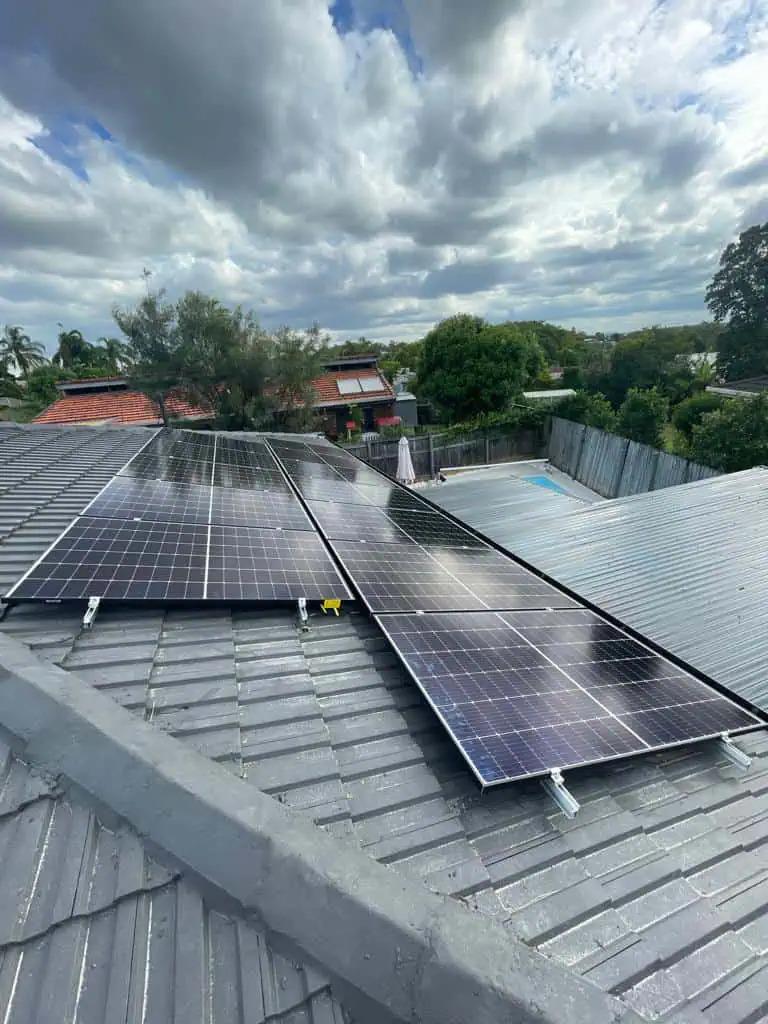In today's fast-paced, high-demand industrial world, energy consumption isn't just a utility line item—it's a major operational cost. For manufacturers, warehouses, and other industrial facilities, electricity bills can account for a significant portion of monthly expenses. Fortunately, there's a solution that cuts costs while also boosting sustainability: commercial solar panel installations.
Across industries, more businesses are discovering how investing in solar power provides both immediate savings and long-term strategic advantages. Let’s explore how solar energy is transforming industrial operations—and why now is the perfect time to make the switch.
- Massive Cost Reductions on Electricity Bills
Industrial facilities consume vast amounts of energy for lighting, machinery, HVAC systems, and more. Installing commercial solar panels helps offset these loads with clean, on-site energy.
Key benefits:
- Lower monthly utility bills by 40–70%, depending on usage and system size
- Net metering allows businesses to sell excess power back to the grid
- Peak shaving helps avoid costly demand charges during high-usage periods
For large operations, these savings can translate into tens or even hundreds of thousands of dollars annually.
- Fast Payback & Long-Term ROI
Solar power isn’t just a cost saver—it’s a high-yield investment.
- Most commercial solar systems pay for themselves in 4 to 7 years
- The average return on investment (ROI) ranges from 10–20% annually
- After payback, businesses enjoy decades of near-zero energy costs
With systems built to last 25–30 years, solar ensures long-term operational savings and price stability.
- Energy Price Stability
Electricity prices are volatile and trending upward. Solar power gives industrial businesses a way to lock in a portion of their energy costs at a fixed, predictable rate.
This allows for:
- Better budget forecasting
- Greater financial control
- Protection against future utility rate hikes
In industries where margins are tight, price certainty can be a competitive advantage.
- Sustainability & Corporate Responsibility
Industrial businesses are under increasing pressure to reduce their environmental impact and meet ESG (Environmental, Social, and Governance) goals.
Solar energy directly supports:
- Carbon footprint reduction
- Green supply chain compliance
- LEED and other sustainability certifications
By transitioning to solar, businesses can position themselves as environmentally responsible leaders, appealing to eco-conscious clients and partners.
- Enhanced Brand Reputation
Sustainability is no longer a trend—it’s an expectation. Customers, investors, and regulators are placing a premium on companies that demonstrate environmental responsibility.
Solar power helps industrial brands:
- Strengthen their public image
- Win more contracts, especially from organizations prioritizing green sourcing
- Stand out in an increasingly competitive market
Displaying solar panels on your facility is more than just functional—it’s a visible commitment to a cleaner future.
- Government Incentives & Tax Benefits
Numerous government programs encourage businesses to adopt solar energy through:
- Investment Tax Credit (ITC): Up to 30% of system costs can be claimed as a federal tax credit
- Accelerated Depreciation (MACRS): Allows faster tax write-offs for solar equipment
- State/local rebates and grants
These incentives drastically reduce upfront costs, making solar more affordable than ever before.
- Improved Energy Resilience
Power outages can be disastrous for industrial operations, leading to downtime, lost productivity, and damaged equipment.
When combined with battery storage, solar installations provide:
- Backup power during outages
- Load balancing for critical equipment
- Reduced reliance on the unstable grid
For mission-critical industries, energy resilience can mean the difference between profit and loss.
- Utilization of Unused Space
Many industrial buildings have large, flat rooftops or adjacent land—perfect for solar panel installations.
- Turn idle roof space into revenue-generating assets
- Ground-mount systems can be installed on unused land or parking lots
- No interference with daily operations
This efficient use of space helps increase site productivity without disrupting business flow.
- Low Maintenance and High Durability
Commercial solar systems are built for industrial-grade durability.
- Minimal maintenance required—just occasional cleaning and inspections
- No moving parts, reducing wear and tear
- Warranties typically cover 25 years or more
Once installed, solar quietly does its job, generating clean power day after day.
- Future-Proofing Industrial Operations
As energy regulations tighten and carbon pricing policies emerge, solar gives industrial facilities a way to stay ahead.
- Meet regulatory standards with ease
- Prepare for future energy audits and emissions reporting
- Position your business as a forward-thinking, sustainable operation
Investing in solar today is a proactive move to remain competitive tomorrow.
Final Thoughts: A Smart Move for Smart Industries
Commercial solar is no longer a luxury or experiment—it’s a proven, strategic asset for industrial businesses looking to control costs, improve resilience, and lead on sustainability.
From Rooftop to Return: How Solar Panel Installation Cuts Your Power Bills
Industrial vsCommercial Solar in Australia: How to Choose the Right System

